LatinR 2023, meeting again in person
By Yanina Bellini Saibene
November 5, 2023
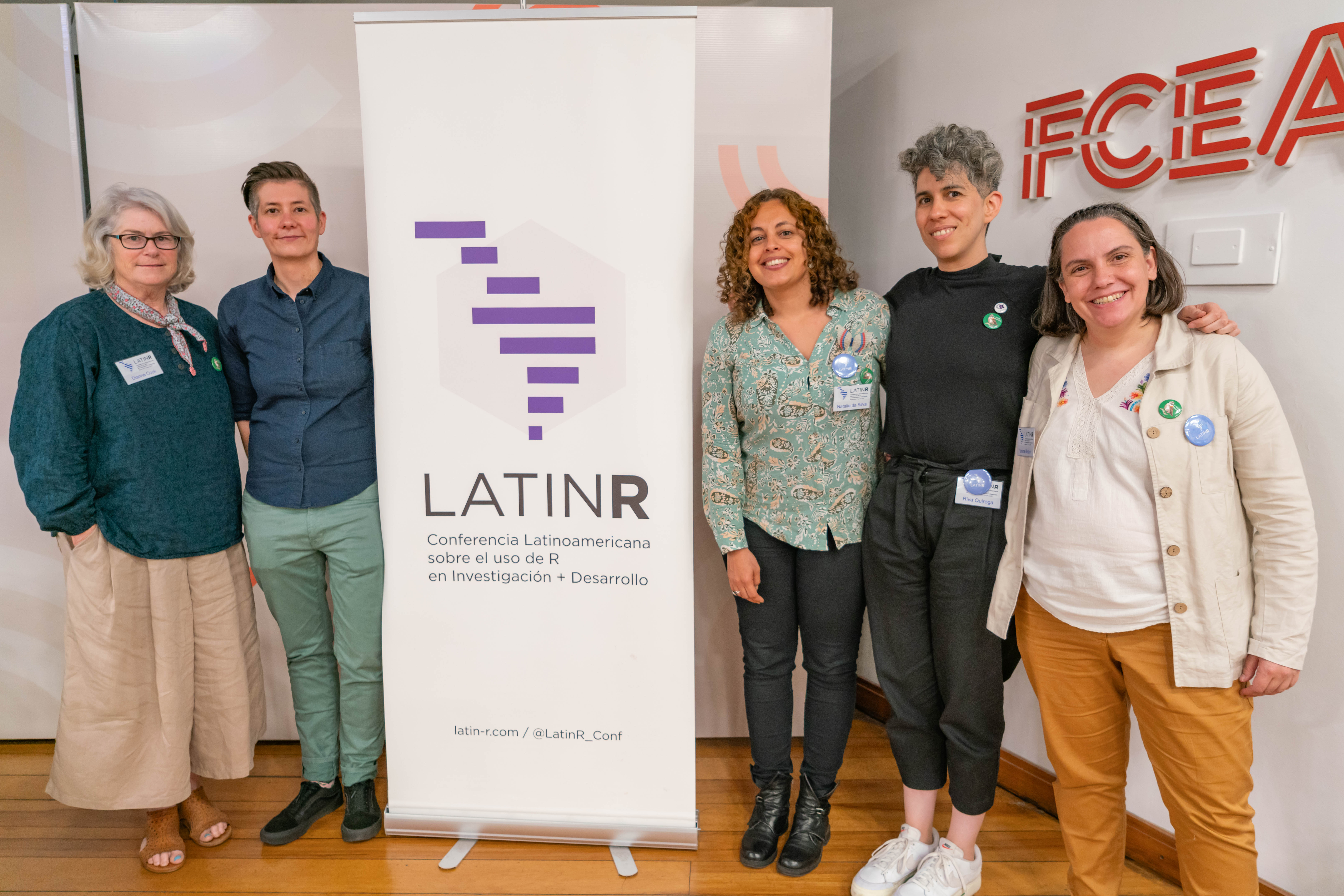
Keynotes Di & Hannah. Chairs Natalia, Riva & Yanina
In November 2017, with a group of R-Ladies, we responded to the R Foundation’s call for academic-focused R events in uncovered regions by useR! and created LatinR. The first edition took place in Buenos Aires, Argentina and the second in Santiago de Chile, Chile. After the virtual editions between 2020 and 2022, this year the latinamerican R community meet up in Montevideo, Uruguay.
I’ve been part of the organizing team since the beginning and became one of the chair in 2020. The entire conference relies on volunteers' and our sponsors' support. Thanks to this support we brought R experts to South America for the first time as keynotes and instructors, we awarded 25 scholarships and a free ticket to one author of the accepted papers. We also offered different prices to students, academics and industry.
The conference is in Spanish, Portuguese, and English, with content in all three languages. We got over 80 proposals for talks and posters and more than 300 attendees from 14 different countries. Of those who registered and reported their gender (82%), 48% identified themselves as female.
Let me summarize some important aspects of the conference.
Workshops
The in-person format has a pre-conference day with half-day, hands-on tutorials in Spanish and English with 200 attendees.
-
Introduction to Machine Learning with tidymodels by Dra. Hannah Frick & Dr. Max Kuhn,
-
Using and contributing to the data.table package for efficient big data analysis by Toby Dylan Hocking,
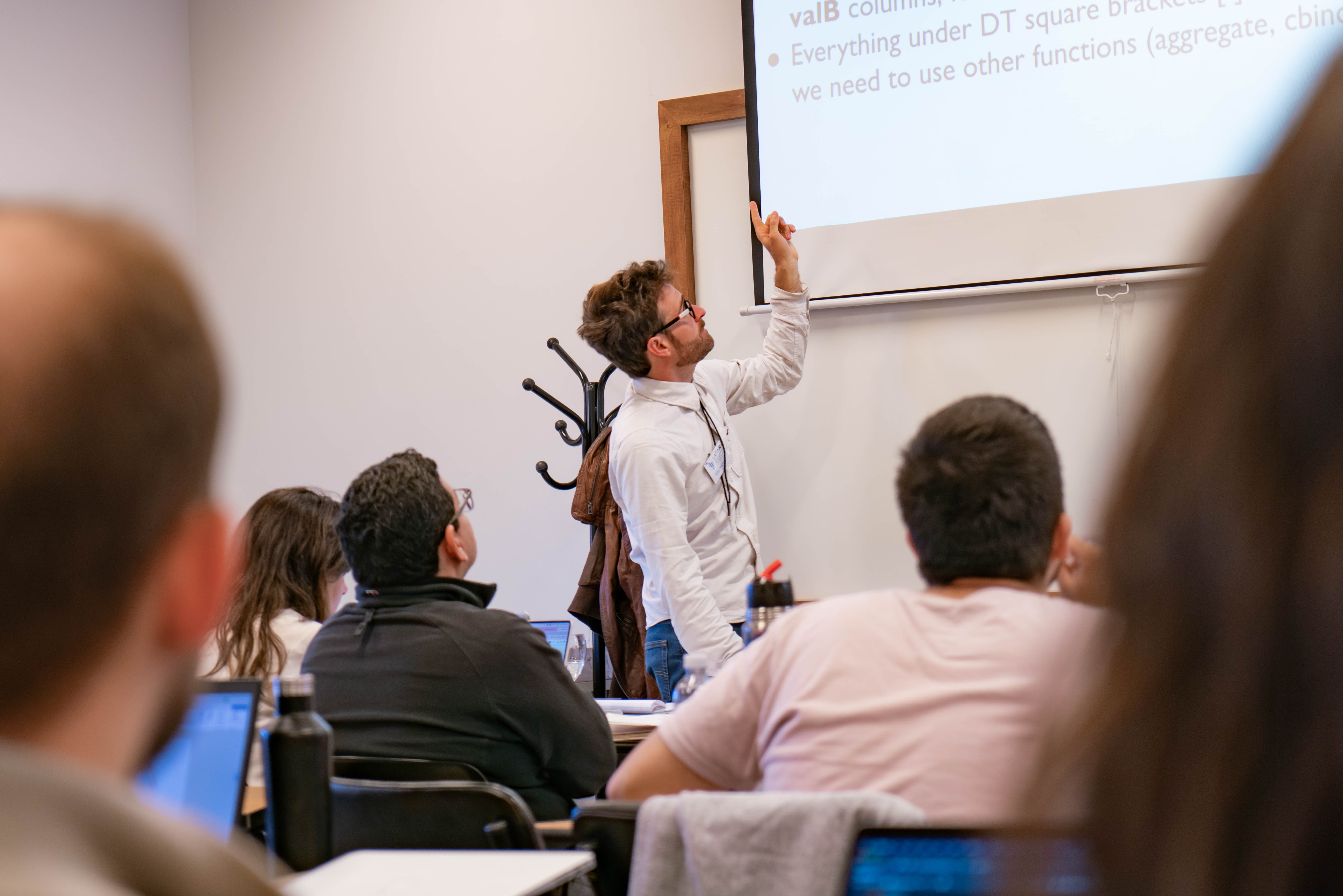
data.table workshop
-
Creating data plots for effective decision-making using statistical inference with R by Dra. Dianne Cook,
-
Creación de reportes reproducibles con Quarto by Riva Quiroga and
-
Introducción a Shiny - Buenas prácticas en un entorno de producción by Agustin Perez Santangelo, Oriol Senan and Federico Rivadeneira, hosted by AppSilon.
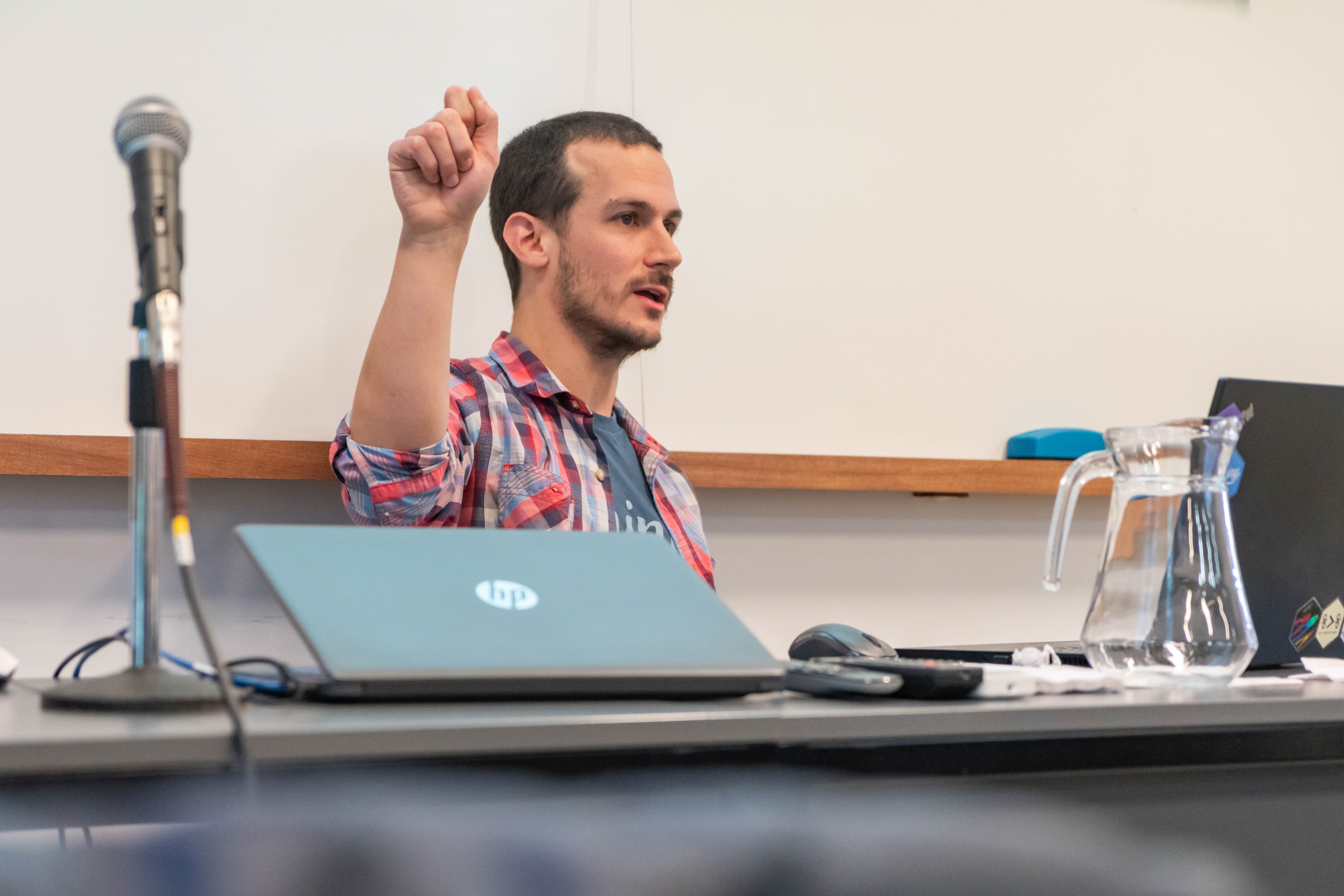
Shiny workshop by AppSilon
Keynotes
We have the presence of four prominent speakers in the field of programming with R, with experience in both academia and industry, committed to collaboration and the promotion of open science, data, and software.
The opening keynote, “How do we know what we don’t know?” was in charge of Dra. Dianne Cook. She introduced and showcased data tours for exploring high-dimensional data.
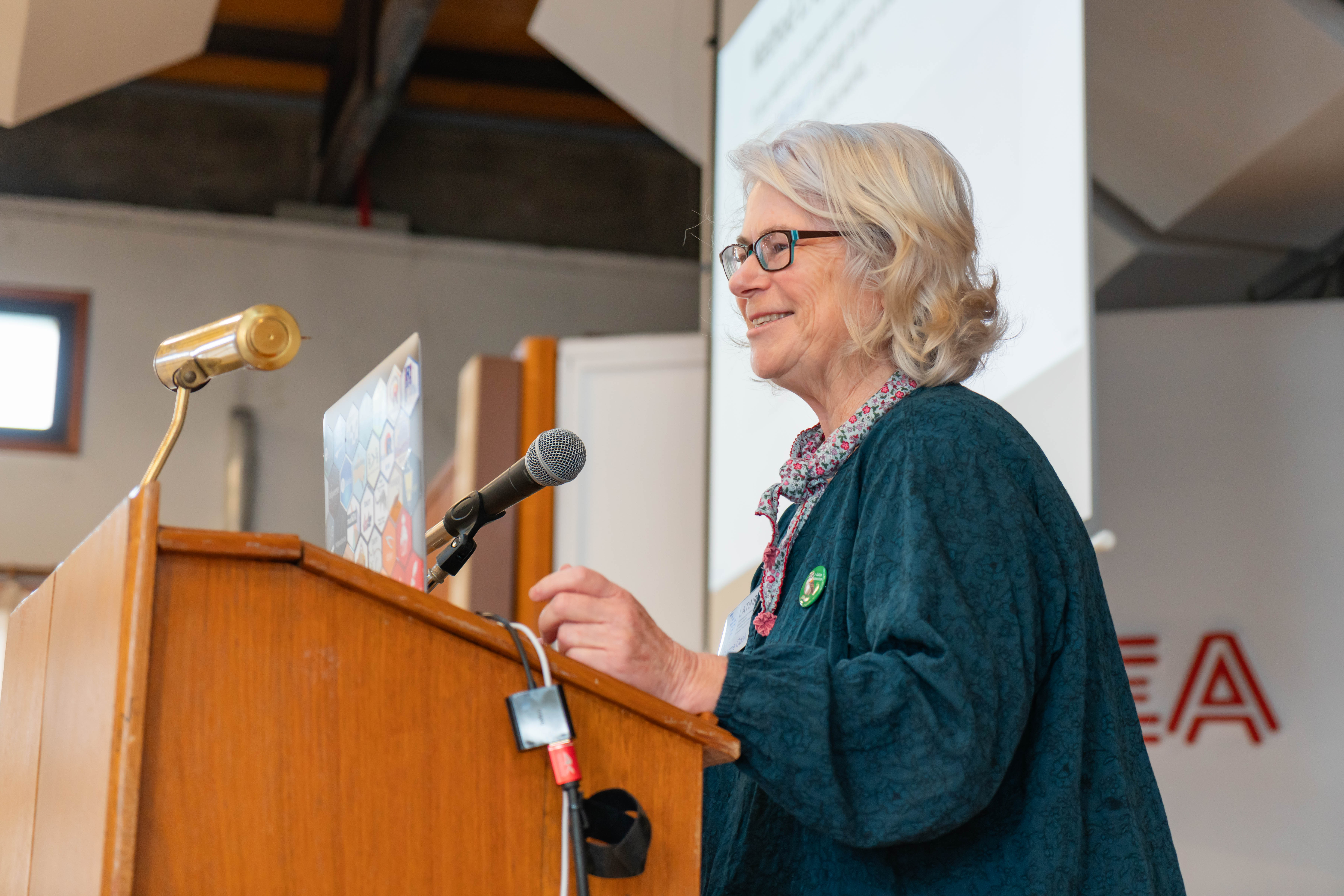
The first day closed with the keynote by Dra. Hannah Frick Cognition: Programming Edition! were she discusses how the way our brain works can influence the way we program, giving real-life examples from her work at the tidymodels team at Posit.

On the second day, we opened with Dr. Fabrizio Scrollini dissertation in Spanish about The Power of Openness: Still in force?. He discusses the path of the open movement, the movement in Latin America, and the challenges we faced in an IA era.
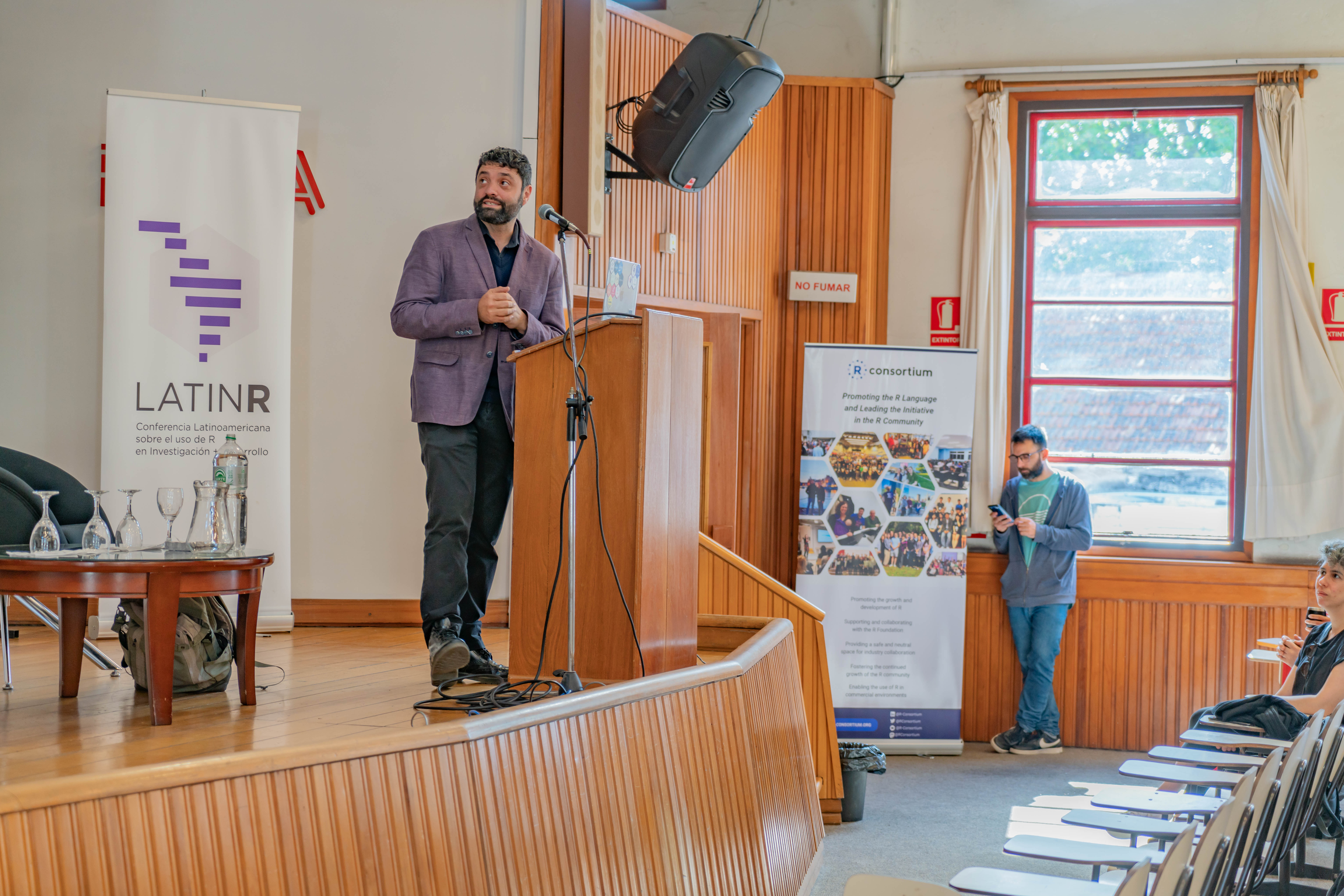
We closed with Dr. Max Kuhn keynote with an Introduction to Tidymodels, giving us a framework on how the tidymodels ecosystem works and what direction is taking.

My selected talks
I moderated several sessions of regular talks and lightning talks. Excellent work was presented by different government teams opening data and generating information to contribute to the transparency and accountability of the state of several Latin American countries. There was also very interesting works from research groups and industry team. I was very pleased that many student present their projects at LatinR.
The sessions on communities, reproducibility, shiny applications, and packages presented very interesting solutions and proposals, which are very close to our reality because we share many characteristics of the economic and social context of our countries.
I want to highlight the following:
- A series of talks of the Epiverse-TRACE-LAC team about their work developing R packages and training professionals in public health data science for Latin America,
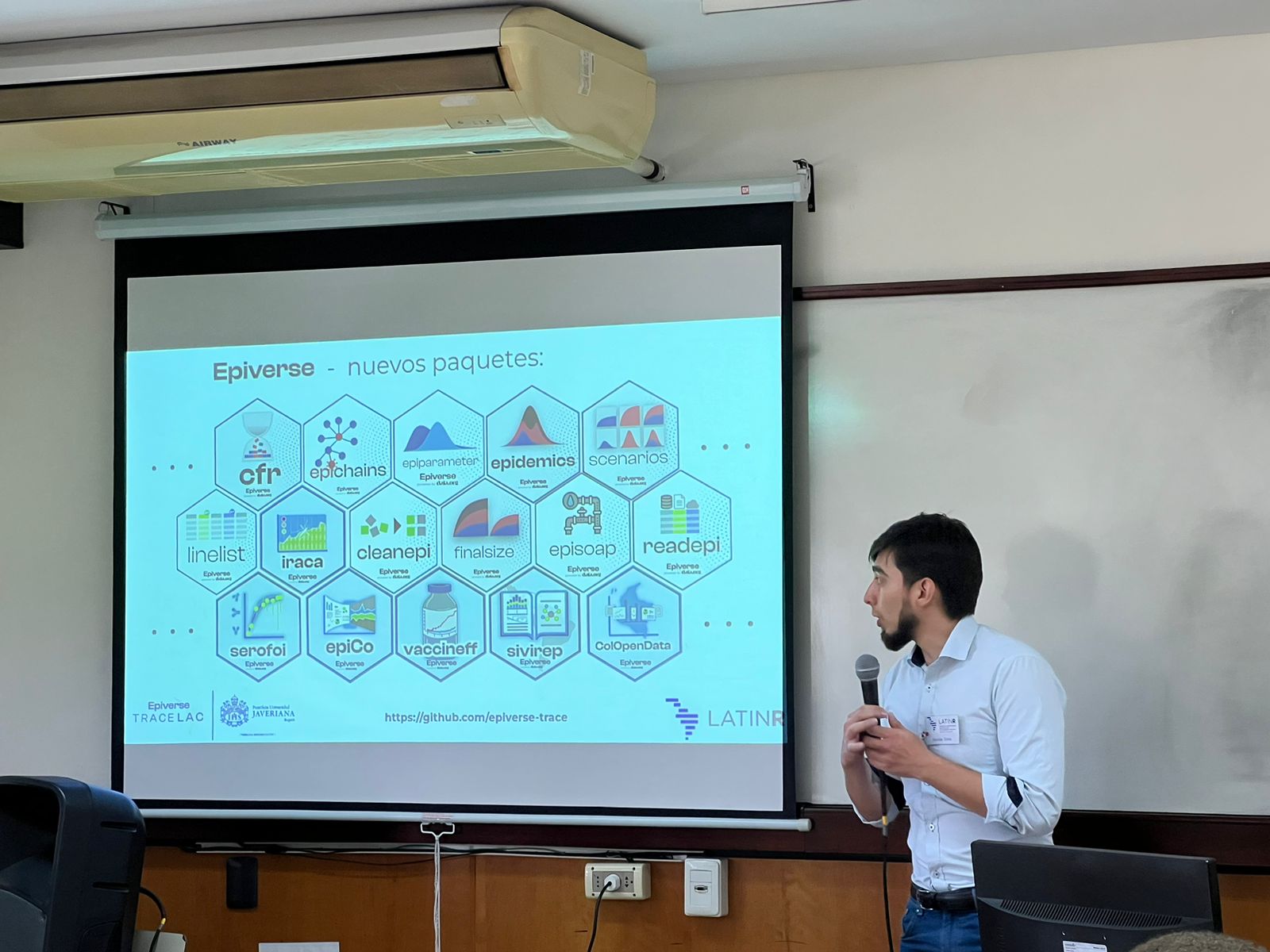
- Paola Corrales' talk What I learned about R and reproducibility during my Ph., showing how she used different R tools and packages for her theses, papers and analyses.
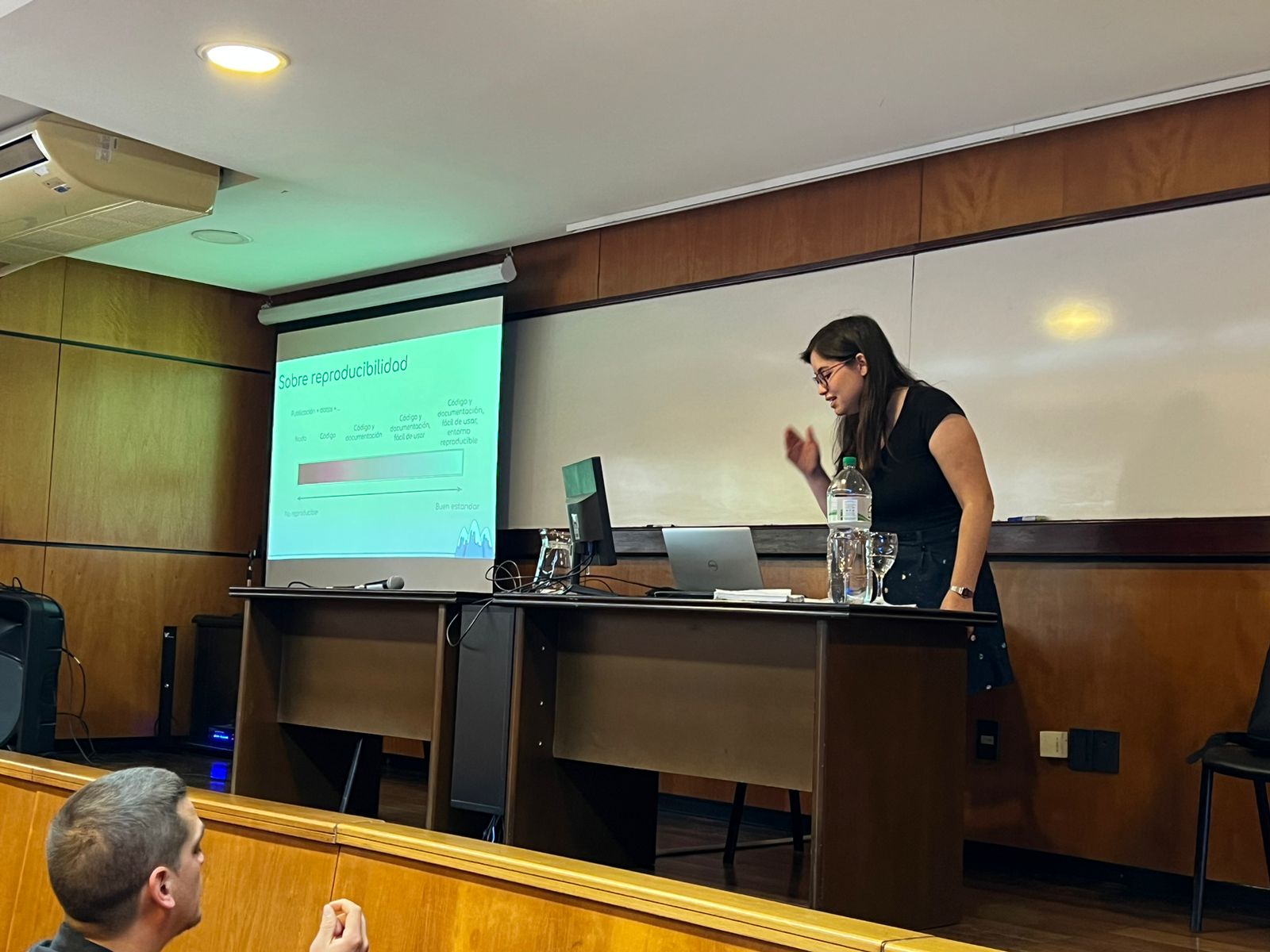
- The talk Extraordinary claims require extraordinary evidence? Reproducibility and Open Data in Water Quality were the authors show the process to replicate a paper published in 2020 and refute their claims by identifying errors in data processing and analysis. The talk shows how they use R and Tidyverse to manipulate the data and ensure transparency with auditable code available in an open repository. The discussion finished with the role of juniors and seniors researchers, proffesionals societies and the importance of tools that allow us to do quality, democratic and reproducible science.
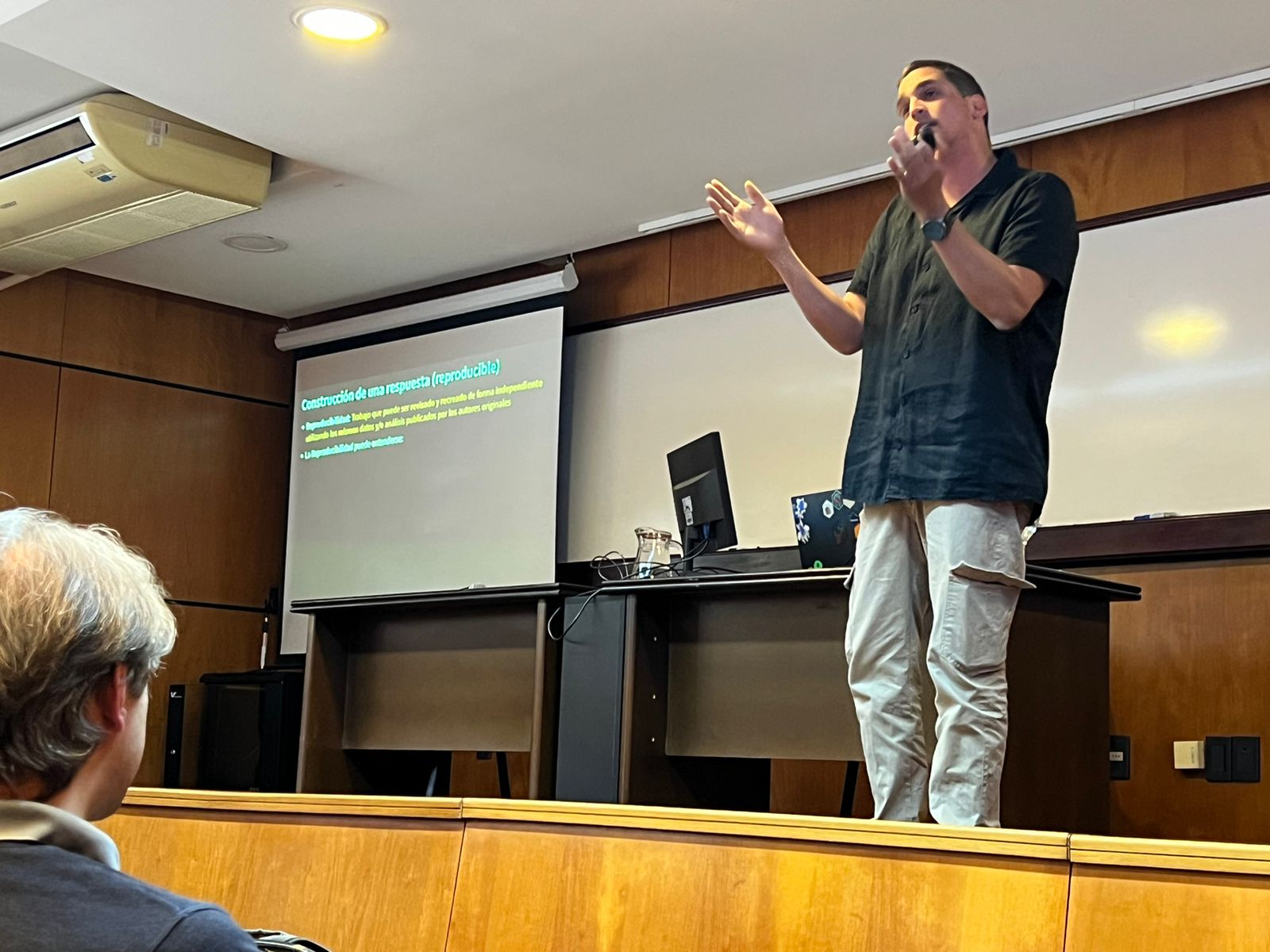
- Elio Campitelli’s talk about SISINTAR package to manage soild data from Argentina, where they mention the project to develop multilingual documentation capacity on base R, and we are welcome to contribute
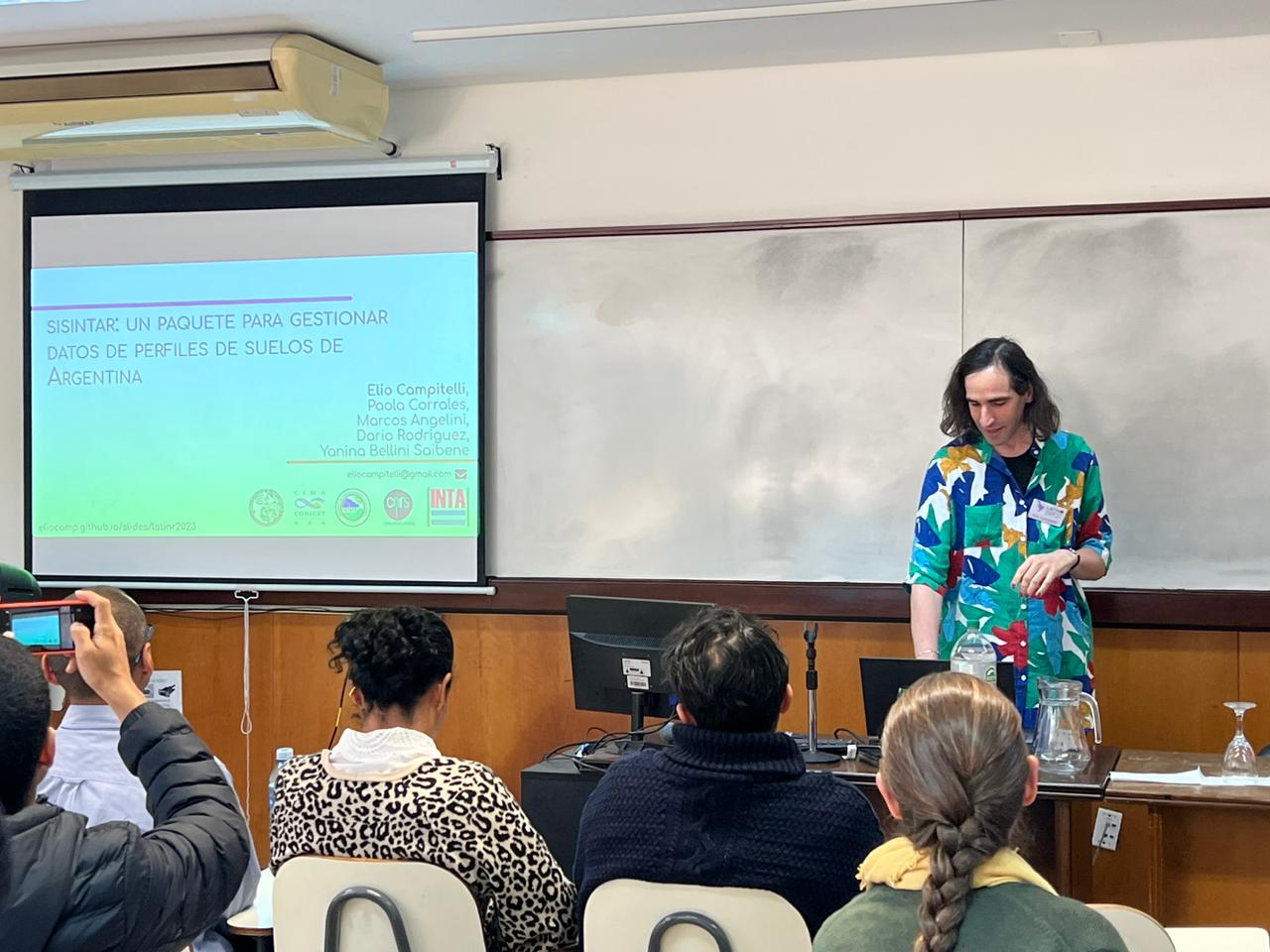
- Haydée Svab talk in portuguese about rOpenSci champions program and her experience developing the odbr R package,
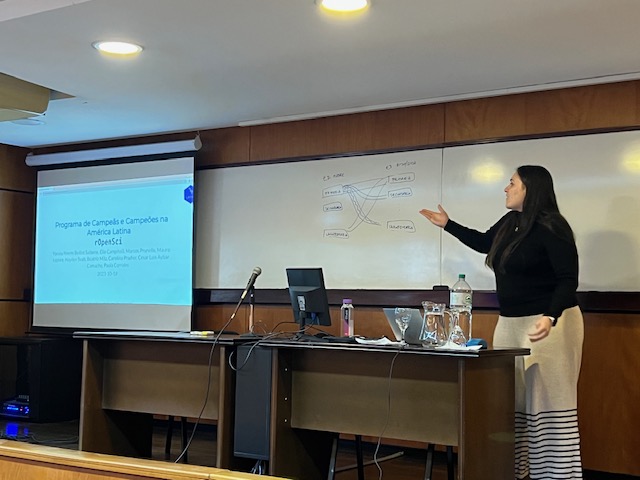
- The talk by Juan Pablo Ruiz Nicolini on how to create and run a Shiny App locally without a server and the need to install anything to facilitate processing and management of thousands of PDF files by a descentralized team.
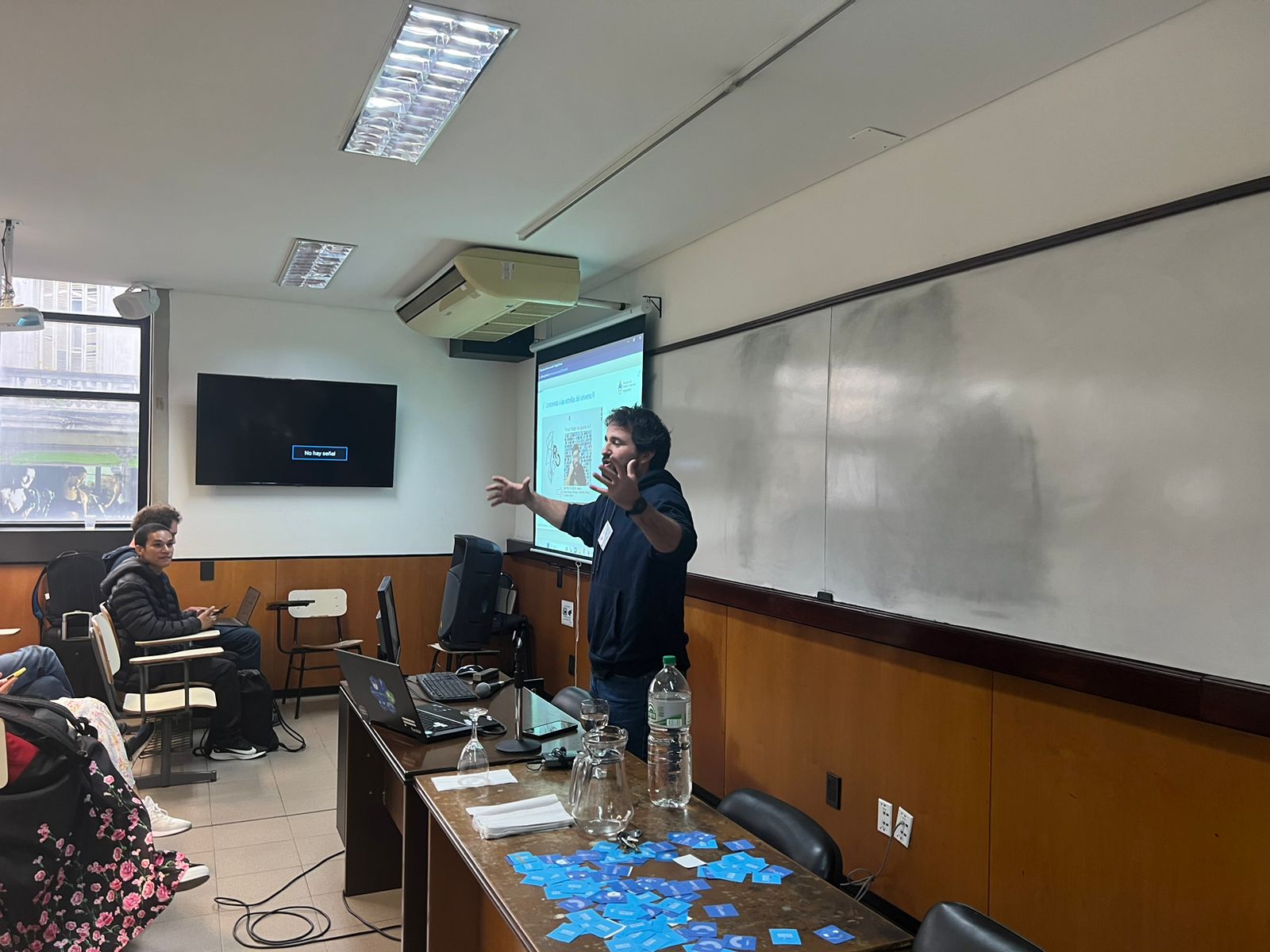
My talks
This year I delivered two talk:
-
Community collaboration analysis through social network analysis: I showcase how we use social network analysis on rOpenSci data and understand the kind of connection we have in our community.
-
R Consortium: I represent the R Consortium during the conference and explain the various programs, activities and funding opportunities available through the R Consortium.
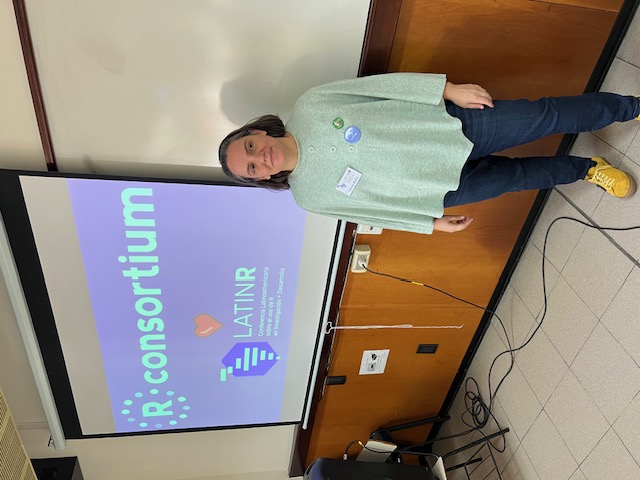
LatinR future
We decided to change the format of the conference from one year to the next, interleaving online and in-person event. The next LatinR will be online and in 2025 we will meet in person again. If you want to organize LatinR in your city, complete this form: https://forms.gle/CWPy41cpNHzPvVp8A
We believe this way we can offer the best of each format every two years offering the same program and content to all participants.
Many thanks to this year’s organizing team and to all the people who chose LatinR as the space to share their work.
It is you who make this conference such a special event for Latin America and the global R community.
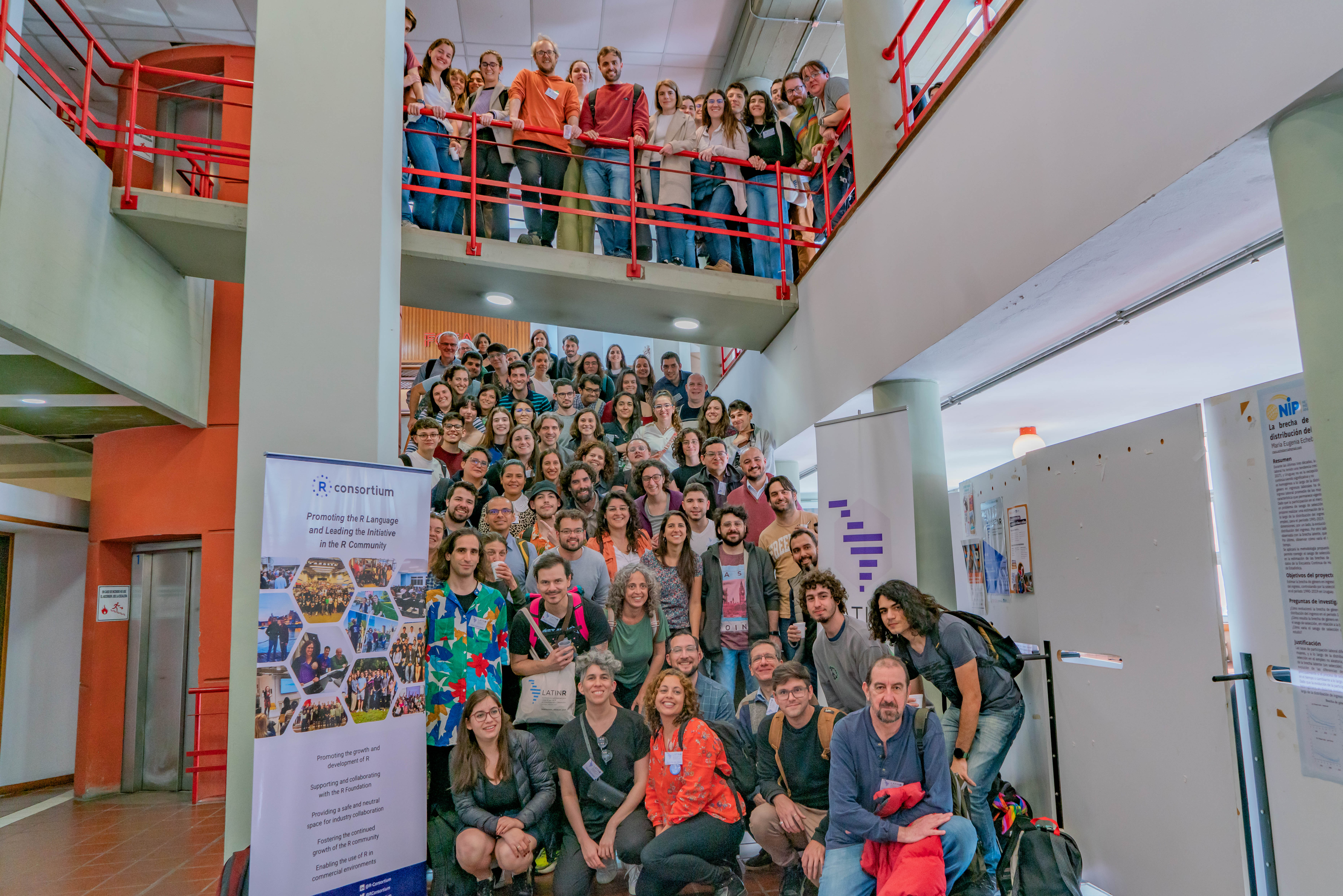
Attendees group final picture
- Posted on:
- November 5, 2023
- Length:
- 5 minute read, 995 words